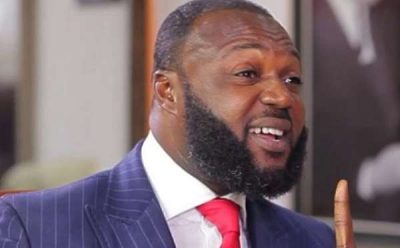Founder and Chief Executive of the defunct capital bank, Mr William Ato Essien, has described himself as a destiny and a nation builder, who lives
Founder and Chief Executive of the defunct capital bank, Mr William Ato Essien, has described himself as a destiny and a nation builder, who lives and pants for the best of the country.
The embattled businessman made this declaration in Court on Thursday as he opened his defence in criminal charges he’s facing over the collapse of Capital Bank.
He had tried unsuccessfully to get the case against him dismissed after the prosecution closed its case months ago.
When asked to introduce himself to the Court, William Ato Essien said rather than refer to himself as a businessman and an entrepreneur, he would see himself as a destiny career for the nation since what he did went beyond those two descriptives.
The case has been adjourned to November 11, 2021, for Mr. Ato Essien to go into his defence of the charges against him.
Mr. Ato Essien is facing trial, with three former executives of the defunct bank; Fitzgerald Odonkor, Kate Quartey-Papafio, and Tetteh Nettey for 26 charges levelled against them.
The four persons engaged in various illegal acts that led to the dissipation of the GH¢620 million liquidity support given to Capital Bank by the Bank of Ghana between June 2015 and November 2016.
It is the case of the AG that Essien, with Odonkor’s aid, transferred the liquidity support to certain companies either controlled by him or in which he had an interest.
It later emerged that Ato Essien has paid close to GHS1.4 million and also given out some 19 newly cleared cars from the port to the state.
Capital Bank was found to be owing GHc468 million, which was said to have arisen due to negligence from the Board.
It was part of the nine banks that collapsed over a 12-month period starting in August 2017.
The other banks were UT, which was taken over by the state-owned GCB Bank along with Capital Bank, Beige Bank, Sovereign Bank, Construction Bank, uniBank, and Royal Bank, all of which were consolidated into the Consolidated Bank of Ghana.
The decision to collapse all the banks was primarily because they had all become highly insolvent as a result of various reasons, including poor corporate governance decisions.
The crisis saw the deposits of some 1.5 million Ghanaians affected, though the government stepped in to safeguard their monies.
Protecting the depositors has so far cost the state GHc 9.9 billion, according to the Finance Minister.

COMMENTS